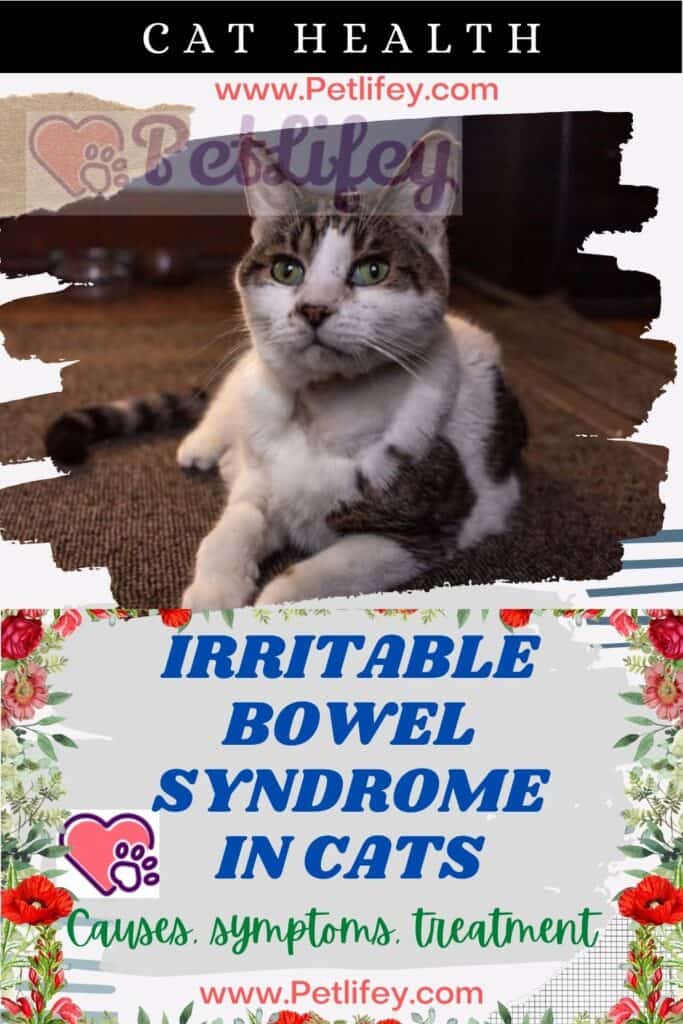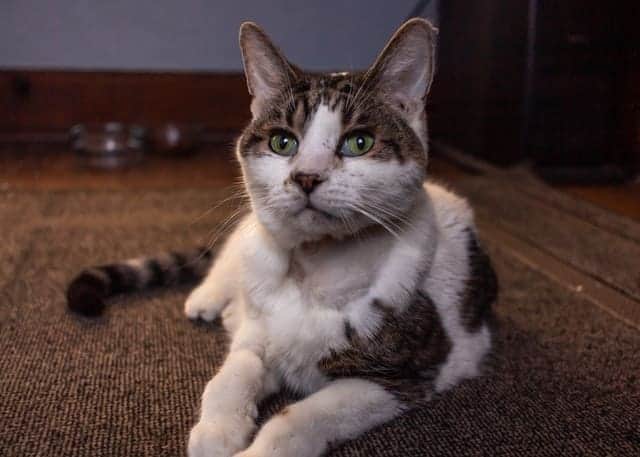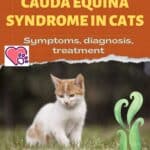Irritable bowel syndrome in cats, a disease associated with other factors. Let’s try to understand the causes, the common symptoms and the expected cure for the feline.

It is not always possible to ensure the health and well-being of your domestic feline. Often, its endurance is severely tested with ailments and diseases common in this animal. The cat can also exhibit some symptoms and signs that do not have a single obvious cause but other factors that cause numerous problems. Let’s talk about irritable bowel syndrome in cats and how to intervene to help them.
Irritable bowel syndrome in cats: causes and symptoms
It is an inflammatory bowel disease that can also affect the feline. This pathology is associated with other causes, which trigger various intestinal problems in the cat. Let’s see what are the various recognized causes and the different symptoms with which it appears.
When the cat indictment of the common symptoms house when his master used to have to do, it is important not out of hand to his condition of suffering, as it may be present in the hairy something more.
Irritable bowel syndrome is an example. Also known as idiopathic inflammatory bowel disease or IBD, it is often chronic and affects various cat intestinal problems or digestive disorders, at least 7 years old.
This chronic intestinal syndrome is associated by many veterinarians with some typical diseases of the animal that can be the cause, such as food allergies and intolerances, disorders of the gastrointestinal tract or even its psychophysical discomfort.
Feline digestive and intestinal problems can, in fact, be caused by several common causes, such as:
- Problems in the daily diet (eg allergy or intolerance to some foods)
- Lack of fiber
- Psychophysical stress
- Bacteria
- Cat parasites
- Reaction to certain drugs
- Colonic dysfunction in the feline (change of neural regulation).
In cats with irritable bowel syndrome, various symptoms may occur which vary according to the general condition of the subject. The symptoms and signs typical of this problem are:
- Painful abdominal spasms
- The cat is nauseous
- Food intolerance
- Flatulence
- Diarrhea Cat
- Constipation or constipation in cats
- Fatigue and tiredness
- colds
- Asthma attacks;
- Inflammations (e.g. gingivitis in cats )
- Joint Disorders
- Osteoarthritis in cats
In addition to these typical symptoms, in the presence of irritable bowel syndrome, the cat can have sudden and acute attacks of diarrhea after meals, which alternate with phases of constipation. Also, your stools may be liquid and show some mucus.
The feline and the irritated intestine: diagnosis and treatment

To make a good diagnosis and understand what is the triggering cause of these disorders in the feline, it will be necessary to go to the trusted vet soon to have it checked. It will be essential for the doctor to know the current health conditions and medical history of the cat. Let’s read specifically what is expected to ensure the most suitable care for the cat.
Once under the expert eye of the veterinarian, the cat can be known, with any previous pathologies, deepening on the timing of the symptoms that have arisen.
The feline will then undergo a complete physical examination in order to exclude, together with the data collected , the other typical causes of diarrhea in the animal, such as:
- Colon cancer
- Colitis in cats
- Cecal inversion
- Giardiasis in cats
- Histoplasmosis
- Bacterial infection
- Whipworms
Treatment for the chronic syndrome in the cat
As for the treatment of irritable bowel syndrome in cats, we start by identifying the cause, as we have said.
Usually, the doctor treating the animal will recommend making changes to its daily diet, to understand if there is lactose intolerance in the cat or intolerance to proteins and carbohydrates.
Probably, the vet could decide on a very simple diet based on cooked rice with chicken. In most felines with this syndrome, improper nutrition is the main cause.
Trying a new diet for at least 2 weeks is ideal for determining if it is suitable. Many benefits can be favoured by supplements and vitamins for the cat. If the diet change does not help the animal, drugs such as glucocorticoids will be prescribed to reduce the problem.






